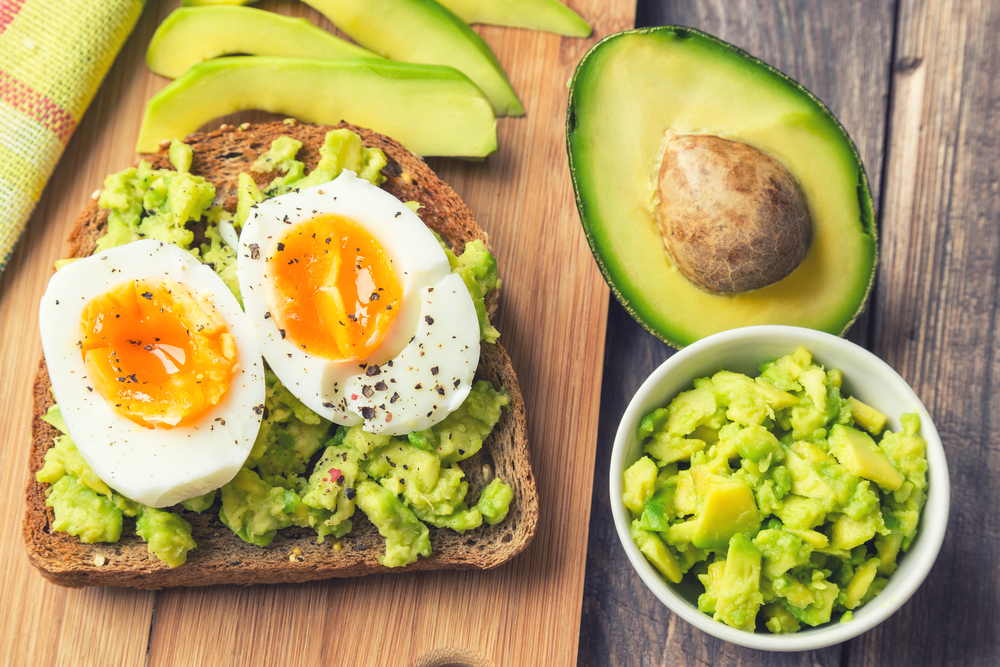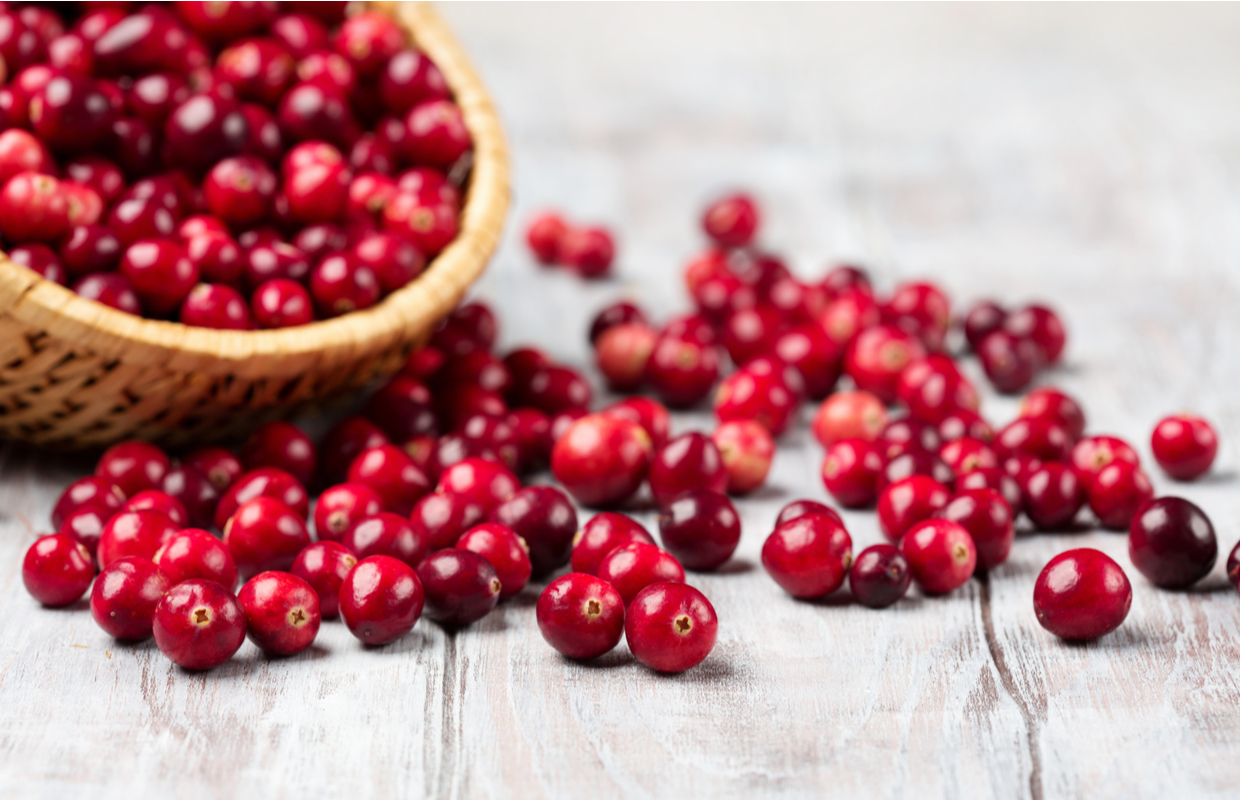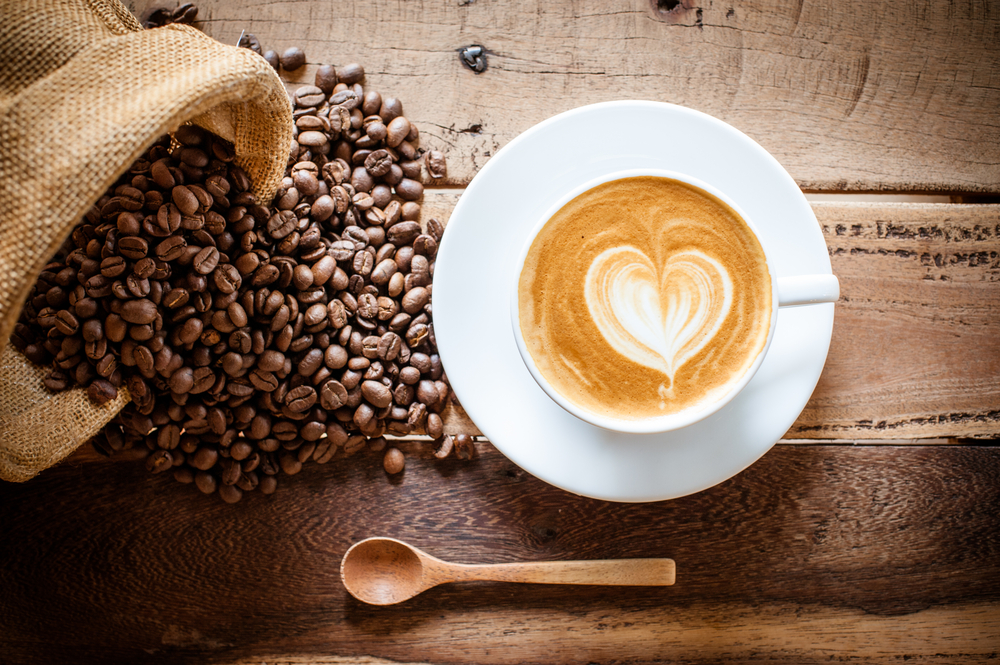Christmas and “healthy” seldom go hand in hand, but a few food tweaks here and there can do wonders for ensuring the holidays are spent feeling happy and in good health…

Protein regulates your appetite, reducing temptations later for sugar-laden foods. Try eating eggs or tofu for breakfast!
1. Start your day with protein
If you’ve got a big meal planned for lunch or dinner, have a good-quality protein breakfast. Protein regulates your appetite, reducing temptations later for sugar-laden foods.
When dietary proteins are digested, a chain reaction begins from your brain to your gut, stimulating your intestines to release glucose, thus reducing the need to eat more food.
‘Protein is thought to reduce levels of ghrelin, which is the hunger hormone while also boosting levels of peptide YY, which is a hormone that also promotes satiety,’ says Rob Hobson, a Healthspan registered nutritionist.
‘Eggs make a perfect high-protein breakfast and you can boost your nutrient intake by partnering them with spinach or tomatoes,’ he adds. For vegans, Rob suggests getting a protein hit from tofu, which can be scrambled with vegetables.
2. Beat the Christmas bloat with healthy aloe vera juice
Belly bloat from indigestion is never a good look, especially since it can make you feel like you’ve put on weight even if you haven’t.
‘Try some aloe vera juice. The active compounds, anthraquinone glycosides, help promote friendly bacteria, which have a cleansing and soothing effect on your digestive system,’ says nutritionist Simon Bandy of Health Plus. ‘This helps to debloat your stomach.’
Sip Health Plus Aloe Vera Juice (£7.95) each morning on an empty stomach.

Chromium can boost insulin sensitivity by increasing the number of insulin receptors present on muscle and fat cell membranes.
3. Take chromium if you’re eating Christmas sweets
If you’ve got a sweet tooth and find it hard to stop once you’ve started, try a daily chromium supplement. Nibbling on sweet things can start a vicious cycle on blood sugar peaks, then crashes that makes you crave and often overconsume yet more sugar stuff.
‘Chromium is an essential trace element, which can boost insulin sensitivity by increasing the number of insulin receptors present on muscle and fat cell membranes,’ says Dr Sarah Brewer, Healthspan medical director.
‘In fact, recent analysis of the results from 28 studies found that, in people with Type 2 diabetes, chromium supplements produced significant reductions in fasting glucose levels and insulin levels compared with a placebo.
‘While most dietary chromium is obtained from meats, fats and oils, nuts, cereals and fish, chromium deficiency is common. Intakes of 50-200 mcg chromium per day are thought to be safe and desirable for adults, but average intakes from a western diet are just 13.4 mcg per day,’ says Dr Brewer.
Try Healthspan Chromium (£14.95).
4. Choose healthy snacks this Christmas
It’s estimated that adults can tot up around 800 calories on snacks alone on Christmas Day, and while they can be filling, they’re often low in nutritional value. ‘The best snacks to opt for are raw veggies with healthy dips, handfuls of dried fruit, nuts and seeds, lean meats and fish, and small slices of cheese with crackers,’ says Healthspan’s Rob.
While crisps and nuts have around the same calories per serving, walnuts have 2.7g omega-3s per 30g serving, while most popular crisps have none of this heart-healthy fat and instead will cause your blood sugar to spike in the same way as eating sweets.
You may also want to think about your behaviours in certain situations when faced with endless snacks, such as at party buffets. ‘Try eating before you go out to help quell the desire to gorge on buffet food or bar snacks and don’t stand next to the buffet as it becomes easy to nibble while chatting and the more you drink the more you nibble,’ advises Rob.

Beetroots are high in fibre – this is essential to keep your digestive system regular!
5. Add beetroot to your Christmas dishes
Making a roast? Add wedges of red, orange and yellow beetroot to your roasting tray. Not only do they add fabulous colour to your meal, but they contain high levels of fibre, particularly with the skin on.
Fibre is essential for stopping your digestion system getting bunged up, and beetroots have 3.8g per serving of soluble fibre. That’s 15 per cent of your recommended daily values.
Three quarters of this fibre is in the skin so simply quarter beetroots whole, drizzle them with nut oil, sprinkle over some thyme, then roast for 25 minutes.
6. Lower your cholesterol with cinnamon
Cinnamon is synonymous with this time of year and now there’s even more reason to add this sweet spice to your mulled wine and biscuits – a study showed that taking between 1-6g cinnamon a day helps lower cholesterol.
While trans fats, found in things like baked foods and processed meats, raise levels of bad cholesterol (LDL) in your blood, cinnamon lowers it while increasing good cholesterol (HDL). ‘Cinnamon improves cholesterol balance by inhibiting the same liver enzyme that is targeted by statin drugs, although these effects have not been fully studied,’ says Dr Brewer.
And there’s more good news. ‘Cinnamon extracts help boost insulin-signalling pathways in skeletal muscle and fat cells, so that more glucose is taken up into these cells from the circulation. According to a review of three trials, cinnamon appears to lower fasting glucose levels by 10.3 to 29 per cent.’

Cranberries contain high levels of vitamin C, which is essential for keeping your immune system strong.
7. Try cranberry to fight colds and stay healthy this Christmas
Keeping your immune system strong during this busy time is easy with a little help from a beautiful seasonal berry. Cranberries have high levels of immunity-boosting vitamin C, with 18 per cent of your daily value per 100g serving, so increase your levels with an all-natural cranberry sauce:
Put 400g fresh cranberries, 75g agave nectar or honey, 250ml water and a cinnamon stick in a pan and simmer for 45 minutes, stirring occasionally until it’s smooth and gelatinous. It’s perfect with poultry, or crackers and cheese.
8. Increase your magnesium intake
If you’ve indulged in a bit more booze and coffee than usual, give your body a helping hand by increasing your magnesium intake. Levels are affected by alcohol and caffeine, which makes your kidneys excrete it faster. Low levels can result in difficulties sleeping, nausea and anxiety.
Top up your levels by eating magnesium-rich foods, such as pumpkin seeds (37 per cent of your daily value per 30g serving), almonds (24 per cent per 30g), barley (10 per cent per 30g) or figs (7 per cent per 30g). Or try a supplement such as Wild Nutrition Food-Grown Magnesium (£19.50).

Artichokes stimulate the production of bile, which is essential in helping your liver and digestive system break down fatty foods.
9. Load up on healthy artichokes this Christmas
Did you know that artichokes are amazing for your digestive system? The natural acid cynarin, found in the root vegetable, stimulates the production of bile, which is essential in helping your liver and digestive system break down fatty foods. So, load up on this fat-fighting veg if you spy it in any antipasti at the buffet table.
10. Try zinc to ease a Christmas hangover
In the lead up to any big nights out, take zinc to help your body combat any boozy indulgence. When your liver breaks down alcohol it causes the release of acetaldehyde, which is a cell-killing toxin, leading to typical hangover symptoms.
However, zinc helps lessen the effects by blocking the release of the acetaldehyde compounds. Try Swanson Zinc (£4.99) tablets daily for a week before your event.

Did you know, coffee can flush away B vitamins and folic acid before your body has absorbed them?
11. Counter after-dinner coffee
If you’re a fan of coffee, make sure you top up on B vitamins and folic acid when you drink your cup of Joe, as coffee can flush away these water-soluble vitamins from food before your body has had a chance to absorb them. Try Swanson Ultra Vitamin B12 With Folic Acid (£4.99).
12. Say goodbye to water retention
If you do put on a few pounds over Christmas, worry not – up to 1.3kg of it could simply be water retention, which is easily lost. Your body retains water when your consumption of sodium – found in table salt and savoury snacks – increases. This is in an attempt to regulate the correct water-to-sodium balance in your cells.
‘The most important thing to do is cut right back on salt intake – do not add it during cooking or at the table,’ says Dr Brewer. ‘In order to flush excess sodium and water from the body, the kidneys need a plentiful supply of potassium salts and the best way to obtain enough potassium is to eat fresh fruit, vegetables, salads and fresh juices.’
You can also try drinking dandelion tea throughout the day for its gentle diuretic benefits. Unsweetened cranberry juice diluted in water also helps get rid of excess water, as does eating asparagus, watermelon and freshly steamed or sautéed dandelion greens.







